Robert E. Kohler (born 1937) is an American chemist and historian of science, specializing in the life sciences.
Robert E. Kohler (born 1937) is an American chemist and historian of science, specializing in the life sciences.
In 1959, Kohler graduated from Yale University with a B.A. summa cum laude in chemistry. [1] In 1965, he received his Ph.D. in chemistry from Harvard University. [2] His Ph.D. thesis is entitled Model studies for the synthesis of β-amyrin. [3] From 1965 to 1970 he remained at Harvard as a research fellow, from 1965 to 1968 at Harvard Medical School's microbiology department and from 1968 to 1970 at Harvard University's history of science department. From 1970 to 1973 he was assistant director of the Burndy Library, a library founded in 1941 by Bern Dibner. In 1973 he joined the faculty of the University of Pennsylvania's department of history and sociology of science, [2] where he was appointed full professor in 1988 and retired as professor emeritus in 2005. [4] He taught courses on the history of American science, the history of technology in war, landscape and environmental history, and science as a social practice. In 1995 he was a visiting professor at the University of California, San Diego. [5]
While Kohler wrote his dissertation on the biochemistry of beta-amyrin, he increasingly turned to topics in the history of science. At the University of Pennsylvania, he gained an international reputation for his research on the history of genetics and biochemistry, as well as the sociology of American science. In his work in 1971/72, he dealt with the background and reception of the discovery of cell-free fermentation by Eduard Buchner, winner of the 1907 Nobel Prize in Chemistry. Kohler later investigated the historical basis of science funding and the history of genetics. In the 1980s he incorporated sociological elements into his studies and showed in 1982 in From Medical Chemistry to Biochemistry: The Making of a Biomedical Discipline that the discipline of biochemistry arose from the conflicts over control of medical schools, particularly between clinical practitioners and researchers. [6] A similar sociological interest led him to investigate the funding mechanisms in the shaping of American science. He published the results in several influential articles and in 1991 in the work Partners in Science: Foundations and Natural Scientists, 1900–1945. [7] In the 2000s he worked on the culture and practice of biology and biodiversity, as well as the history of geographical and biological fieldwork. [5]
Robert E. Kohler was and advisory editor from 1984 to 2011 for Social Studies of Science , from 1987 to 1992 for Isis, and from 1991 to 2001 of the Journal of the History of Biology . In 2005 he became an advisory editor for Nature and Culture . He has published 6 books and more than 30 scientific articles. [5]
In 2004 Kohler received the George Sarton Medal from the History of Science Society (HSS). [8] In 2016 he was elected to the board of trustee of the Pennsylvania Academy of Fine Arts (PAFA). [4]
On June 6, 1958, Robert E. Kohler married Frances Coulborn (1938–2021). As an editor and manager, she contributed to the success of the history of science journals Isis and Osiris. She was director of publications for the Chemical Heritage Foundation. [9] Upon her death she was survived by her widower, two sons, and three grandchildren. [10] Frances Kohler was a friend of Wilma Anderson Kerby-Miller. [11] [12]
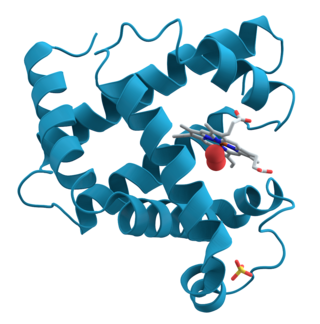
Biochemistry or biological chemistry is the study of chemical processes within and relating to living organisms. A sub-discipline of both chemistry and biology, biochemistry may be divided into three fields: structural biology, enzymology, and metabolism. Over the last decades of the 20th century, biochemistry has become successful at explaining living processes through these three disciplines. Almost all areas of the life sciences are being uncovered and developed through biochemical methodology and research. Biochemistry focuses on understanding the chemical basis which allows biological molecules to give rise to the processes that occur within living cells and between cells, in turn relating greatly to the understanding of tissues and organs as well as organism structure and function. Biochemistry is closely related to molecular biology, the study of the molecular mechanisms of biological phenomena.

Eduard Buchner was a German chemist and zymologist, awarded the 1907 Nobel Prize in Chemistry for his work on fermentation.
Zymase is an obsolete term for an enzyme complex that catalyzes the fermentation of sugar into ethanol and carbon dioxide. It occurs naturally in yeasts. Zymase activity varies among yeast strains.
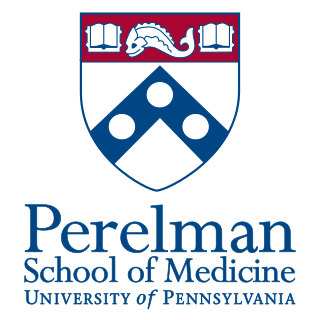
The Perelman School of Medicine is the medical school of the University of Pennsylvania, a private, Ivy League research university located in Philadelphia. Founded in 1765, the Perelman School of Medicine is the oldest medical school in the United States. Today, the Perelman School of Medicine is a major center of biomedical research and education with over 2,900 faculty members and nearly $1 billion in annual sponsored program awards.

Bruce Michael Alberts is an American biochemist and the Emeritus Chancellor’s Leadership Chair in Biochemistry and Biophysics for Science and Education at the University of California, San Francisco. He has done important work studying the protein complexes which enable chromosome replication when living cells divide. He is known as an original author of the "canonical, influential, and best-selling scientific textbook" Molecular Biology of the Cell, and served as Editor-in-Chief of Science magazine. He was awarded the National Medal of Science for "intellectual leadership and experimental innovation in the field of DNA replication, and for unparalleled dedication to improving science education and promoting science-based public policy" in 2014.

Lawrence Joseph Henderson was an American physiologist, chemist, biologist, philosopher, and sociologist. He became one of the leading biochemists of the early 20th century. His work contributed to the Henderson–Hasselbalch equation, used to calculate pH as a measure of acidity.
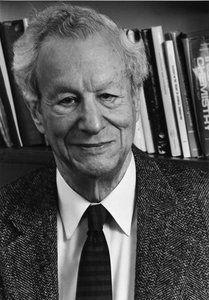
Frank Henry Westheimer was an American chemist. He taught at the University of Chicago from 1936 to 1954, and at Harvard University from 1953 to 1983, becoming the Morris Loeb Professor of Chemistry in 1960, and Professor Emeritus in 1983. The Westheimer medal was established in his honor in 2002.
Annual Reviews is an independent, non-profit academic publishing company based in San Mateo, California. As of 2021, it publishes 51 journals of review articles and Knowable Magazine, covering the fields of life, biomedical, physical, and social sciences. Review articles are usually "peer-invited" solicited submissions, often planned one to two years in advance, which go through a peer-review process. The organizational structure has three levels: a volunteer board of directors, editorial committees of experts for each journal, and paid employees.
At Duke University, the title of James B. Duke Distinguished Professor is given to a small number of the faculty with extraordinary records of achievement. At some universities, titles like "distinguished professor", "institute professor", or "regents professor" are counterparts of this title. Two Nobel laureates currently serve as James B. Duke Professors.

The history of biochemistry can be said to have started with the ancient Greeks who were interested in the composition and processes of life, although biochemistry as a specific scientific discipline has its beginning around the early 19th century. Some argued that the beginning of biochemistry may have been the discovery of the first enzyme, diastase, in 1833 by Anselme Payen, while others considered Eduard Buchner's first demonstration of a complex biochemical process alcoholic fermentation in cell-free extracts to be the birth of biochemistry. Some might also point to the influential work of Justus von Liebig from 1842, Animal chemistry, or, Organic chemistry in its applications to physiology and pathology, which presented a chemical theory of metabolism, or even earlier to the 18th century studies on fermentation and respiration by Antoine Lavoisier.
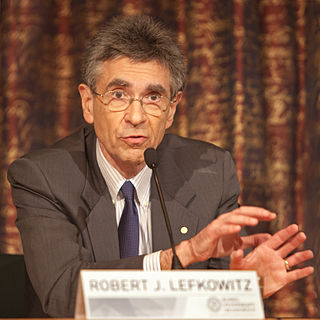
Robert Joseph Lefkowitz is an American physician and biochemist. He is best known for his discoveries that reveal the inner workings of an important family of G protein-coupled receptors, for which he was awarded the 2012 Nobel Prize for Chemistry with Brian Kobilka. He is currently an Investigator with the Howard Hughes Medical Institute as well as a James B. Duke Professor of Medicine and Professor of Biochemistry and Chemistry at Duke University.
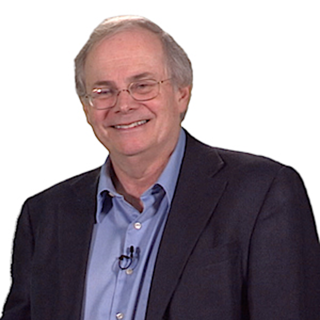
Gregory A. Petsko is an American biochemist and member of the National Academy of Sciences, the National Academy of Medicine, the American Academy of Arts and Sciences, and the American Philosophical Society. He is currently Professor of Neurology at the Ann Romney Center for Neurologic Diseases at Harvard Medical School and Brigham and Women's Hospital. He formerly had an endowed professorship in Neurology and Neuroscience at Weill Cornell Medical College and is still an adjunct professor of Biomedical Engineering at Cornell University, and is also the Gyula and Katica Tauber Professor, Emeritus, in biochemistry and chemistry at Brandeis University. On October 24, 2023, in a ceremony in the East Room of the White House, President Joe Biden presented Gregory Petsko and eight others with the National Medal of Science, the highest honor the United States can bestow on a scientist and engineer.
The Sir William Dunn Institute of Biochemistry at Cambridge University was a research institute endowed from the estate of Sir William Dunn, which was the origin of the Cambridge Department of Biochemistry. Created for Frederick Gowland Hopkins on the recommendation of Walter Morley Fletcher, it opened in 1924 and spurred the growth of Hopkins's school of biochemistry. Hopkins's school dominated the discipline of biochemistry from the 1920s through the interwar years and was the source of many leaders of the next generation of biochemists, and the Dunn bequest inaugurated a period of rapid expansion for biochemistry.
The Presidential Young Investigator Award(PYI) was awarded by the National Science Foundation of the United States Federal Government. The program operated from 1984 to 1991, and was replaced by the NSF Young Investigator (NYI) Awards and Presidential Faculty Fellows (PFF) program. In 1995, the NSF Young Investigator program was subsumed into the NSF CAREER Awards program, and in 1996, the Presidential Faculty Fellows program was replaced by the PECASE program.
Liebig–Pasteur dispute is the dispute between Justus von Liebig and Louis Pasteur on the processes and causes of fermentation.

Angela N. H. Creager is an American biochemist, historian of science, and the Thomas M. Siebel Professor in the History of Science at Princeton University, where she is also the director of the Shelby Collum Davis Center for Historical Studies. Prior to the Siebel chair's creation in 2015, she was the Philip and Beulah Rollins Professor of History. She served as president of the History of Science Society (HSS) from 2014 to 2015. She focuses on the history of biomedical research in the 20th century. In 2020 she was elected to the American Philosophical Society.

Arnold Thackray is an emeritus professor at the University of Pennsylvania. Initially an English chemist, he moved to the United States, where he founded or extended a series of institutions, initially in Philadelphia, then on a wider scale with the History of Science Society (HSS), Science History Consultants, and the Life Sciences Foundation.
The UCSF Graduate Division is the graduate school of the University of California, San Francisco, and is located in San Francisco. It is recognized as one of the premier biomedical graduate schools in the United States. It offers 19 PhD programs, 11 MS programs, two certificates and a physical therapy program.
Frederic Lawrence Holmes was an American historian of science, specifically of chemistry, medicine and biology. He was Avalon Professor of the History of Medicine at Yale University and was known for his work developing Yale's programs in history of science and medicine. His scholarship included notable studies of Claude Bernard, Antoine Lavoisier, Justus Liebig, Hans Adolf Krebs, Matthew Meselson, Franklin Stahl, and Seymour Benzer. He was awarded a George Sarton Medal for lifetime achievement in the history of science and served as a president of the History of Science Society.